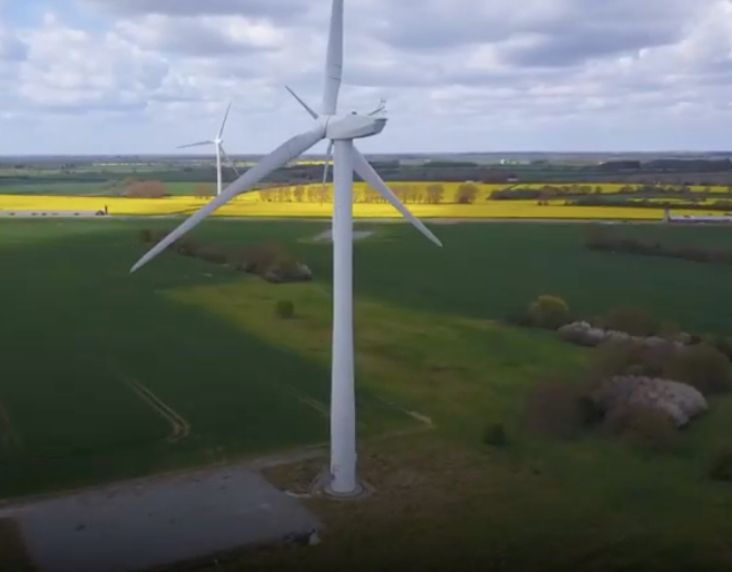World Economic Forum’s Global Risk Report 2022 has identified five environmental issues from the top 10 list.
The most significant challenges we face today are achieving decarbonization by meeting increasing energy demand, transitioning to a net-zero carbon economy, building sustainable products, Sustainable Industry Value chains, and developing infrastructure to support the circular economy.
The last month COP 27 has focused on the increasing role of businesses in making a difference, driving sustainability initiatives, and bridging the gap between sustainability ambition and action.
The Sustainability First Strategy
Sustainability starts with the business strategy. When we begin with a sustainable end-state in mind, the goal of strategy becomes to work backward from the future to make that destination a reality.
From this, it would become more evident that incremental sustainability enhancements to existing businesses won’t be enough, and systematic transformation will create a lasting competitive advantage.
Sustainability and the environmental, social, and governance (ESG) agenda should be geared towards adding value to the enterprise. This agenda should serve as a central sustainability hub enabling businesses to manage the entire carbon accounting in the end-to-end net-zero journey and ESG insights apart from regulation-proof ESG reporting.
An Integrated Approach for Implementation
Organizations will need to involve cross functions for alignment and sharing financial and sustainability information. The decarbonization efforts and the cost behind climate change will require budgeting to achieve net zero goals. The CFO and finance function support is needed to work across the investment portfolios on these new initiatives to embed sustainability into core business operations.
The sustainable business transformation matrix should be embedded across the entire organization and monitoring of progress against these targets with coordinated oversight.
Accountability and collective responsibility are imperative for defining and achieving sustainability goals across all line of businesses (LOB) and C-suite stakeholders that need to be involved.
Business Process Management for Sustainability Solutions
Business process management and process intelligence play a key part in visualizing a customer’s sustainability journey and how current business processes can support this or where there is a need for change or completely design a new process.
- Companies need transparency in their supply chains to enable intelligent planning and identify emissions across the supply chain.
- Sustainable energy requires business process management of energy operations for automated energy planning and optimization of power generation portfolios.
- A sustainable product as a service requires the provider to know if the returned product can be recycled for a resource recovery to justify a resource-efficient system in which components retain their value as much as possible. The digitization of the product life cycle is an enabler for sustainable product design.
Business Process Maturity from Digital to Sustainable Transformation
There is a need to improve the maturity of digital processes to consider sustainability together during the digital transformation journey.
For example, the sustainability-driven purchasing strategy should enable sustainable procurement by engaging suppliers actively to improve and innovate sustainable products and services. The sustainability performance through a comprehensive sustainability questionnaire (involving environmental and social aspect) becomes the central aspect in tendering suppliers. The terms and conditions should be in place to terminate the contracts, good performers should be rewarded and part of your supply management strategy.
Business enterprises operating model re-design is required to become a sustainable business. Sustainability value streams must be integral to any digital transformation initiative to embed sustainability data and insights into business processes for short and long-term sustainability goals.
Sustainability KPIs for LOB should be an integral part of the digital transformation initiative. Some of these KPIs would include:
- % Green supply base management and supplier segmentation
- % Reduction in empty vehicles in return travel
- % Product going to landfill vs recycle/reuse
- Lifecycle assessment opportunities for sustainable product development
- CO2 emission per shipment
- % Rework order and many more
In the automotive industry, for instance, operating model support is needed at the business processes level due to emerging models of design new processes. Shifting to EV options presents an entirely new set of digital services from car sellers to mobility providers that need to be addressed to ensure the electric driving user experience is seamless such as the location of charging stations, length of battery charge, battery as a service and charge as you pay.
Collaboration from Inwards to Outwards
The businesses can work with cross sectors and engage new ecosystem partners to co-create sustainability solutions to discover and solve problems by exchanging capabilities, sharing data, and building a common digital platform across alliances of competitive advantage.
Cooperation around new products and services will be the inevitable next step in the growth of collaboration evolution. This can lead to exploring new markets to expand the value chains at scale.
For example, a large fertilizer and food solution company has changed the business and operating model by creating a new marketplace in energy solutions with a vast value creation potential to the portfolio.
The company has engaged with ecosystem partners for developing energy solutions by producing Ammonia-based green fertilizer and using renewable hydrogen in ammonia production through external collaborations and partnerships.
There are many similar examples for other industries to drive sustainability at a large scale.
Towards a Sustainable Future
2023 will be the year of sustainability to transform ideas and ambition into action.
A sense of urgency is needed to apply these learning's at scale to develop sustainable business models. We have simplified and sharpened our commitments toward sustainable digital transformation in the new world order. We Rise for a more equal world, to be future-ready, and to create value.
The four key pillars of Tech Mahindra’s Sustainability Framework and our sustainability solutions have been built on to enable sustainability-driven business models and embed them into enterprise business strategy and operations.
About the Author:
Avanish Kumar,
SAP Practice Head, Tech Mahindra
Avanish has over 28 years of experience in the Industry and SAP domain. Avanish is passionate about working in sustainability to enable business value-driven S/4HANA sustainable transformation for clients. He has extensive experience developing sustainability solutions for different industries using SAP technologies and digital platforms.
He is a certified sustainable supply chain professional and a regular blogger on sustainability, supply chain, and SAP. Avanish has a Bachelor’s in Engineering from IIT, Roorkee, and a diploma in sustainable business strategy from Harvard Business School.





